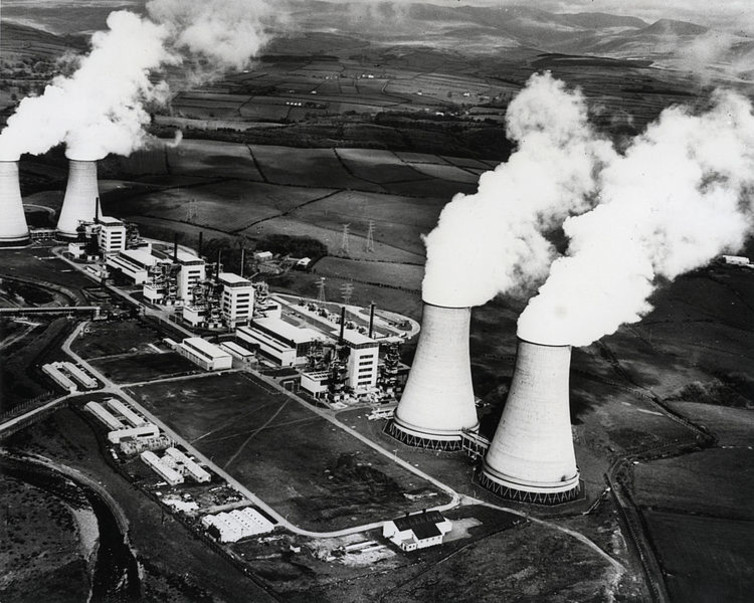The UK government’s European Union (Notification of Withdrawal) Bill is short, extremely short, at just 137 words, but will nevertheless have huge ramifications. Tucked away in the “Commentary on provisions of Bill” is the long-awaited clarification that Brexit will also mean Brexatom, with the UK leaving the Euratom Treaty.
The existence of such a treaty may come as surprise to many people. Euratom was in fact one of the three founding treaties of what is now the European Union, and in 1957 established the European Atomic Energy Community (Euratom) to support the development of nuclear energy. Since then it has remained largely unreformed, and exists as a legal entity separate from the EU. There was therefore some legal ambiguity as to whether the UK could remain with the Euratom after it left the European Union. This has now been clarified: the UK is leaving anyway.
The Euratom Treaty covers nuclear non-proliferation as well as safety standards for workers, the public and the environment. The Euratom executive has its own research and development programme and is a global leader in nuclear fusion. It also set up a nuclear-specific loan facility and created a supply agency to ensure adequate access to nuclear materials (such as uraniam fuels).
The UK government must now start to unpick these institutional relationships and start building up its domestic capabilities in nuclear safety, research and so on. By choosing to exit Euratom, it has also left European institutions and the remaining member states with some problems.
What next for European nuclear science?
In the short term, the most direct additional government expense will be in research and development. It might still be possible to remain in the EU’s research programme, as demonstrated by Switzerland, which makes a financial contribution to take part. The Euratom research budget is €1.6 billion over five years. The UK currently pays around 12% of the whole EU budget which means that its contribution to Euratom’s research budget is about £32m a year. This in turn results in, at least, a similar level of investment in UK-based projects. While it is less than the government’s domestic nuclear research budget of £66m, it would be a considerable additional amount to fund.
The largest share of Euratom research budget goes towards nuclear fusion. Fusion is the politically controversial process of combining atoms, rather than splitting them (nuclear fission). To some, it offers the opportunity for clean and limitless energy, while others see it as a technology that is always 40 years from commercialisation.
In France, Euratom is building the International Thermonuclear Experiment Reactor (ITER) which, when complete, will be the world’s largest fusion experiment.
Euratom already funds the Joint European Torus (JET), a precursor to the ITER based in Oxfordshire. Brexit will be particularly problematic for the £2.5 billion JET facility as its current funding expires in 2018. The EU provides €60m a year for its operation so the UK will need to provide significant post-Brexit finance if it is to keep operating.
However, the nuclear industry is also concerned that Brexit will impact upon its costs. For the reactor builders, being outside the nuclear common market (another key chapter of the Euratom Treaty) as well as the single market and having no freedom of movement may lead to higher prices if tariffs and customs checks are introduced or if restrictions are imposed on foreign nuclear scientists and engineers.
Security is at risk
There will also be technical and institutional challenges to replace the functions carried out by Euratom safeguards inspectors. Chapter VII of the Euratom Treaty establishes a nuclear material control system, giving the European Commission responsibility for “satisfying itself” through physical inspections at nuclear facilities that material is not being diverted for military purposes.
In 1976 a trilateral agreement was signed between Euratom, the International Atomic Agency (IAEA) – the international nuclear watchdog – and the UK, sharing responsibility on the non-proliferation of nuclear material. Since 2010 the IAEA has reduced its presence during regular inspections in Europe as it relies more on the “complementary results” of Euratom inspections.
A quarter of all time spent on nuclear inspections throughout the EU is carried out in Britain, due to the scale of nuclear fuel fabrication and waste management facilities, such as Sellafield. Without Euratom involvement, the UK’s Office for Nuclear Regulations will need to undertake many more inspections to meet IAEA requirements. The government should be able to find the extra cash, but it will be difficult to quickly hire and train the necessary new staff to implement rigorous safeguards.
Leaving the Euratom Treaty will also have political implications for the UK and the EU. Outside the EU, the UK is going to have to develop new or adjust existing bilateral nuclear trade agreements so it can still import uranium or crucial reactor parts. While some argue that outside the EU the UK will be free from the political shackles of the Brussels bureaucracy and “anti-nuclear” member states like Austria, the UK diplomatic service will have to work hard to replace the conferred influence of being part of the EU.
The political impact in the EU remains equally unclear. Britain has been one of Europe’s most active supporters of nuclear power, and the industry’s trade association worries that Brexit could tip the balance of member states towards an anti-nuclear majority. The complications around Brexatom also puts a spotlight onto the Euratom Treaty itself, whose legal status and many of its functions are out of step with the modern EU and may once again lead to calls for it to be abolished.
 Antony Froggatt receives funding from UK Energy Research Centre for work on the energy and climate policy implication of Brexit. He is affiliated with Chatham House.
Antony Froggatt receives funding from UK Energy Research Centre for work on the energy and climate policy implication of Brexit. He is affiliated with Chatham House.
This article was originally published on The Conversation. Read the original article.



 JPMorgan Lifts Gold Price Forecast to $6,300 by End-2026 on Strong Central Bank and Investor Demand
JPMorgan Lifts Gold Price Forecast to $6,300 by End-2026 on Strong Central Bank and Investor Demand  Elon Musk’s Empire: SpaceX, Tesla, and xAI Merger Talks Spark Investor Debate
Elon Musk’s Empire: SpaceX, Tesla, and xAI Merger Talks Spark Investor Debate 

































